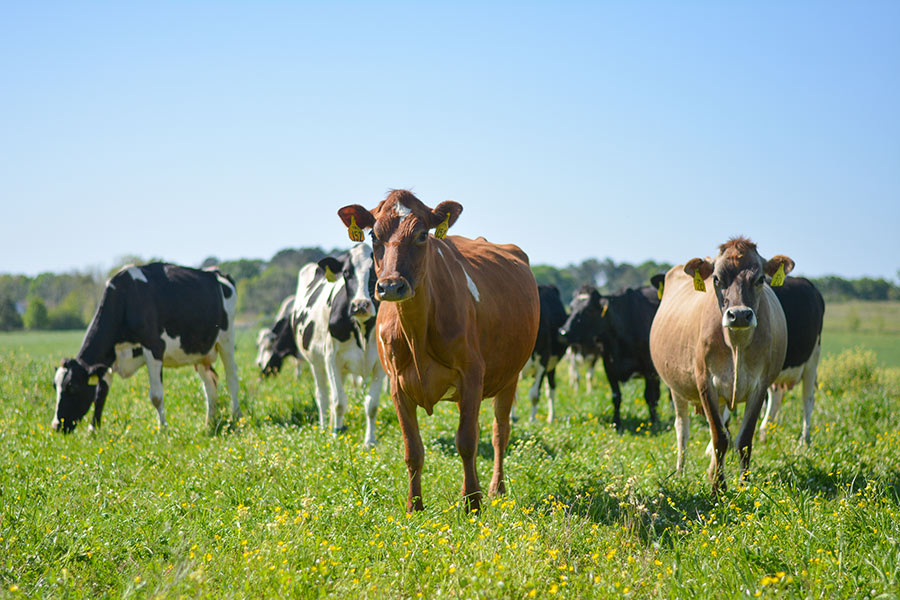One of the key attractions of our Certified Regenerative by AGW program is its practical…

Grassfed Challenges
One of the most common questions we receive is, “What feed supplements do you allow under the Certified Grassfed by AGW program?” To address this question, we have produced an Information on Supplements paper, available on our website. But let’s explore the issue further here.
Grassfed means grassfed
The Certified Grassfed by AGW program is an optional, additional accreditation to AGW’s flagship Certified Animal Welfare Approved standards. A core requirement of the Certified Grassfed by AGW program is that animals must be fed a grass- and forage-based diet. Conditions on the ground can impact the feasibility of 100% grass-feeding—particularly for farms and ranches in areas with short growing seasons or variable precipitation. Because the grazing, forage and hay in such locations can be of questionable quality, operations can struggle with body condition scoring, resulting in requests to use supplementary protein or energy feeds.
Permitted or prohibited?
Although some supplements are permitted under AGW’s Certified Grassfed standards, they must have a similar nutritional analysis (in terms of fiber, protein, fat and carbohydrate content) as forages in order to qualify for use.
Consistent with general expectations of the grassfed claim, the Certified Grassfed by AGW program does not allow any grain-based feeds or protein tubs. In addition, common feeds such as grains, urea, and molasses are not permitted. (While molasses can be used as a binder in mineral and vitamin supplements, it cannot be given as a feed itself.)
If the supplement product is not a forage then two of the first three ingredients listed must be a mineral or source of mineral. Similarly, the first two ingredients of any supplement must not comprise grain, protein or processed grain by-products or plant protein (if not identified as what type of plant protein it is).
Finally, supplements including fruit, cottonseed meal, soybean meal, citrus pulp or the feeding of root crops, such as carrots, turnips, radishes or other similar type crops, are also not permitted; and Certified Grassfed by AGW animals must never be exposed to situations where they could consume the roots of these crops.
Remember: If you’re ever unsure about any feed not listed in the paper, the onus is on you to contact the AGW program before use.
Is Grassfed right for you?
The Certified Grassfed by AGW program is a good fit for 100% grass and forage-feeding systems that are not dependent on supplemental feeding of non-forage type products. It’s important to remember that while grassfed management can offer additional marketing benefits, a grassfed certification alone does not signify high-welfare management. Farms and ranches that face less than ideal grass-feeding conditions will probably achieve the best animal welfare and production outcomes under our highly regarded Certified Animal Welfare Approved by AGW standards, which allow a larger variety of supplementary feeds.
Download the Information on Supplements paper at agreenerworld.org/grassfedsupplements


